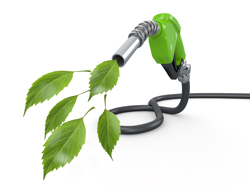Breaking down cell walls for biofuels
It is becoming evident that our fossil fuel-dependent economies cannot be indefinitely sustained, necessitating the urgent use of alternative fuels. Plant biomass, also known as lignocellulose, is gaining ground as a limitless source of raw fuel material. Its composition of energy-rich polysaccharides makes it ideal for fermentation to produce bioethanol and other products. However, the complex structure of cell walls makes them very resistant to degradation rendering the sugar conversion (saccharification) process a major technological hurdle that needs to be overcome for plant-fuelled biorefinery. The key objective of the EU-funded ‘Improving plant cell walls for use as a renewable industrial feedstock’ (Renewall) project was to advance our understanding of plant cell walls and to utilise this knowledge for enhancing the saccharification process. Plants with modified wall properties could subsequently be exploited for production of biofuels. The hypothesis was that certain plant genes involved in cell wall biosynthesis or other (often microbial) genes could modify the plant cell wall properties or degrade wall polymers when expressed in plants. Once identified and cloned, these genes would get incorporated in genetically modified (GM) species to breed improved plant feedstock for biorefining. Scientists performed a broad genetic screening on mutant or transgenic plants exhibiting altered cell walls or digestibility. Key genes were identified that improved cell wall digestibility alongside others that were involved in lignin and secondary cell wall biosynthesis. This information was successfully utilised to genetically transform model plants and modify their cell wall structure, cellulose biosynthesis and digestibility. Coupled with basic biochemical studies on the saccharification process, this data provided invaluable insight on what controls biomass digestibility and how it could be modified in biomass crops. From this in-depth understanding Renewall scientists are hopeful they will be able to develop well-informed strategies for the generation of biomass crops improved for biofuel and biorefinery applications.







